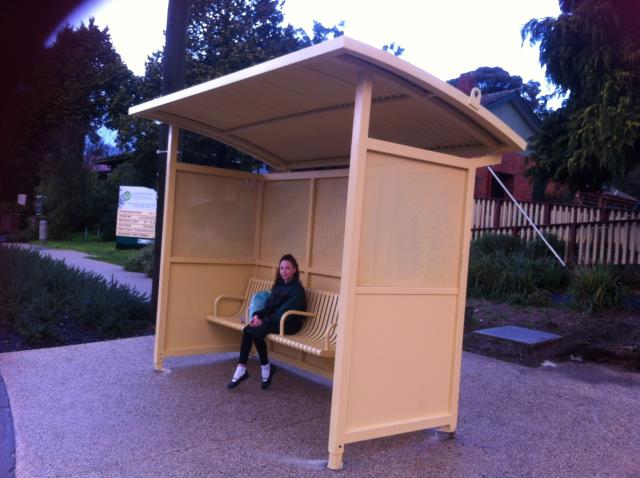By Oliver Lees
Advocates in the Macedon Ranges are calling for the safety and accessibility of regional bus stops to be improved, following the release of a study that found them to be typically lower quality than in metropolitan areas.
The ‘Getting to the Bus’ report, released by Victoria Walks, surveyed 436 Victorian bus users to ascertain the quality of bus services across the state.
According to the study, only 16 per cent of regional and rural areas have bus shelters, compared with 29 per cent in Melbourne.
Similarly only 56 per cent of regional bus stops are wheelchair accessible, compared with 65 per cent in metropolitan areas.
Sunbury and Cobaw Community Health community connections manager Carly Visscher said the lack of transport is the number one barrier to healthcare, social interaction and accessing essential services in the Macedon Ranges.
“Many of our program participants do not drive and this impacts their ability to get to appointments and group activities.,” Ms Visscher said.
“We do offer a pick-up service for a number of our programs and there are volunteer driver services within the region but there are often long waiting lists.”
Macedon MP Mary-Anne Thomas said she was aware of the disparity.
“We know there is more work that needs to be done which is why we regularly review safety across our network, including access to bus stops, and welcome the community’s input in making our roads safer for everyone,” Ms Thomas said.
Ms Thomas said a new shelter is being installed at the Quinn Court bus stop at Kyneton Hospital.
The survey also found that almost a quarter of all bus shelters in regional Victoria were left as grass or soil.
Public Transport Users Association president Tony Morton said this can prove a barrier for certain people, such as people with prams or limited mobility, to access public transport services.
But right now, that walk from home to the local bus stop is often just the first of many barriers we put in the way of people using public transport,” Mr Morton said.







